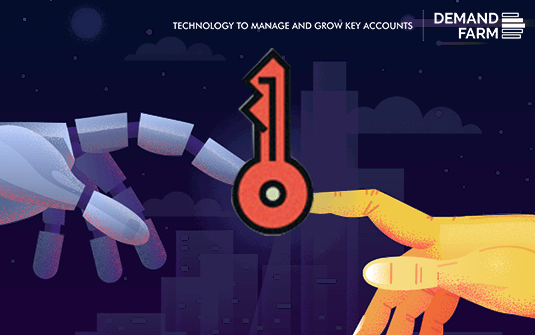How AI is transforming Relationship Intelligence in Sales Today

How AI is transforming Relationship Intelligence in Sales Today At the core of any sales deal are several relationships, between the customers and salespeople and also between team members of the sales team. These relationships are built and developed over time and transform into crucial assets. This intricate web of relationships results in a ton of tribal knowledge that includes your supporters and detractors, their hierarchies, opportunities won or lost and champions etc. Relationship intelligence (RI) documents, consolidates and maps this tribal knowledge into algorithms and meaningful insights. Importance of relationship intelligence for sales success Relationship intelligence actively involves mining valuable relationship data to generate actionable insights that drive sales. This intelligence is built upon the meaningful interactions that occur between your business and its customers, encompassing data sourced from various touch-points such as phone conversations, emails, and in-person meetings. These interactions serve as the foundation for constructing relationship graphs, forming the crucial building blocks of relationship intelligence. Through the analysis of your company’s relationship data, relationship intelligence provides essential information concerning customer relationships, ensuring personalized and relevant conversations with each customer. By identifying champions and detractors, this knowledge empowers salespeople with the information needed to prioritize accounts and continually enhance relationships. Moreover, relationship intelligence uncovers the relationships within your team members’ networks, leading to the discovery of additional business growth opportunities. AI’s impact on relationship intelligence Even as the sales function has evolved with the proliferation of CRMs to manage customer relationships, artificial intelligence (AI) technology is ushering in a new wave of relationship intelligence in sales. The contextual insights provided by AI-powered tools are helping sales professionals identify opportunities, interact better with customers and forge stronger relationships to drive sales. Take Ai Logo Maker sites for instance, it’s a fast and convenient site to create a logo that truly connects to the right audiences. By leveraging communication data to unravel new opportunities, AI tools are enabling relationship intelligence to manage relationships better and improve conversions leading to higher revenue. Let’s look at how AI is transforming relationship intelligence and creating more opportunities for sales: Enhancing Data Collection and Analysis Relationship intelligence automates the time-consuming task of data collection by centralizing disparate customer databases and capturing the complete lifecycle of a customer. AI tools use data from your inbox and calendar and save valuable time by eliminating data entry and automating the creation and updating of customer contact and company profiles. This process replaces manual data entry and retrieval, enabling your salespeople to focus on higher-value activities and building relationships. Artificial intelligence utilizes AI algorithms to analyze customer interactions and behaviors. Such tools empower your team to search transcript metadata for keywords and phrases to unearth customer needs. Sales personnel can also leverage advanced analytics such as frequency maps and topic clusters to detect significant customer trends. AI tools such as Ask AI provide real-time insights by sourcing the right data about customers that enables you to create customized content and move faster. Achieving Personalization at Scale Empowered by AI-driven insights, sales personnel gain a 360-degree view of the customer’s requirements. This helps them personalize their interactions and nurture trust and loyalty towards their brand. Relationship intelligence helps sales teams to focus on managing expectations, providing clarity and finally choosing strategies that lead to customer satisfaction and higher conversions. Artificial intelligence also provides recurring intelligent reminders to maintain key relationships and establish long-lasting connections. Handling massive volumes of data and leads can result in a serious case of decision fatigue for sales reps. Guided by AI tools, relationship intelligence can considerably reduce this load by automating target account selection and lead prioritization. Sales productivity can increase manifold with your team focused on pursuing high-quality leads, while the follow-up is done by machines. AI tools can update sales managers about relationship status across accounts and also provide real-time insights about prospects. This information enables precise predictions about client behavior and helps you close more deals. AI also enables accurate predictions by providing a real-time picture of transactions to help sales executives decide whether to advance or park deals. The one-size-fits-all strategy rarely works for customers with diverse needs and demands. AI tools enable the creation of customized campaigns and pitches based on customer data. They can also help you establish seamless communication with high-priority customers. Based on their preferences and past behavior, AI tools can suggest the ideal time to make an offer via call or email, when to send an email or interact on social media platforms. Utilizing Intelligent Sales Assistants AI tools provide crucial support to and sales personnel and help them maximize their output and expedite crucial tasks. Chatbots such as ChatGPT generate responses on the basis of an extensive training dataset. With the unique ability to interpret inputs, chatbots are proving to be efficient research assistants. They offer a faster and smarter way to find options instead of spending hours on search engines. Moreover, AI-powered virtual assistants provide insights to help you formulate new sales strategies. While you will still need to validate the results, virtual sales assistants will save a lot of your time and effort by answering all your questions. AI tools maintain a systematic record of communication, appointments, and other basic sales activities relieving salespeople of tedious and time-consuming tasks. Artificial intelligence manages and automates tasks varying from scheduling appointments to assessing your sales team’s pipeline. This gives you and your team bandwidth to focus on building long-term customer relationships and high-value activities. Integrating a video translator can improve your global outreach, making it easier to communicate with clients in different languages. By using this AI tool, sales teams can deliver personalized presentations to a diverse audience, ensuring clear communication with their prospects. Artificial intelligence can mine datasets from multiple sources and get back with prioritized leads. The logic, speed and standardization that AI brings to the process can’t be matched by human effort. Armed with a list of high-quality leads, your sales team can focus on converting them and you can even create
Redefining Sales Enablement for the Future: The AI Advantage

The world of sales is evolving at a breakneck pace. The days of manual processes and guesswork are long gone. They’ve been replaced by a new era of data-driven insights and cutting-edge technology. A recent Salesforce study revealed that over 95% of sales operations professionals and sales leaders believe that Artificial Intelligence (AI) coupled with automation gives sales reps more time to focus on selling. A fairly large number of sales professionals also believe that AI will play a significant role in their industry in the foreseeable future. This number is growing every day. The rapid shift is causing businesses to rethink their approach to sales enablement, and one game-changing technology is leading the charge: artificial intelligence. Imagine a world where your sales team can: instantly identify high-potential leads, use detailed customer profiles to tailor sales pitches, close deals at a significantly higher rate, all while spending less time on administrative tasks. No! This isn’t a scene from a science fiction movie; it’s the reality of sales enablement powered by AI. As organizations around the globe continue to embrace AI-driven solutions, the gap between those who adapt and those who resist will only widen. As we explore the AI advantage in sales enablement, let’s dive into the benefits and innovations transforming the way businesses approach sales. Let’s look at the practical issues faced by organizations looking to adopt AI-driven strategies and prepare for the future of sales. Get ready to redefine your sales enablement strategy for the AI-driven future. Read Ebook: The Future of AI-Assisted Account Planning The AI Advantage: Key Benefits for sales enablement As we explore the remarkable impact of AI on sales enablement, it’s crucial to recognize the main advantages that artificial intelligence offers. From improved efficiency and productivity to smarter decision-making and customized customer experiences, AI is set to reshape the sales landscape. Let’s dive deeper into these benefits: 1. Enhanced efficiency and productivity Incorporating AI into sales enablement strategies not only enhances the overall performance of sales teams but also streamlines their day-to-day activities. By reducing time-consuming tasks and optimizing workflows, AI brings a whole new level of productivity to the sales process. a. Automation of repetitive tasks: One of the most significant advantages of AI in sales enablement is its ability to automate repetitive tasks, freeing up valuable time for sales representatives to focus more on strategic initiatives. Tasks like data entry, lead qualification, appointment scheduling and follow-up emails can be taken over by AI-powered tools. Free of these routine activities, sales reps can focus on nurturing relationships, closing deals and driving revenue growth. b. Streamlined sales processes: AI can streamline sales processes by optimizing workflows, reducing bottlenecks and increasing overall efficiency. AI-powered analytics can help sales teams identify inefficiencies in their sales funnel, uncover best practices, and make data-driven decisions to optimize their processes. AI can also assist in managing and prioritizing tasks. This ensures that sales reps focus on the most impactful activities. 2. Improved decision-making through data analysis The ability to make well-informed decisions is critical to the success of any sales team. By harnessing the power of AI, sales professionals can unlock valuable insights from data and make smarter, more strategic choices to drive business growth. a. Predictive analytics and forecasting: AI-powered predictive analytics can dramatically improve decision-making by providing accurate sales forecasts and identifying potential risks and opportunities. AI is characterized by advanced algorithms that analyze historical data, market trends and customer behavior. Using these algorithms, Ai can generate reliable sales predictions, enabling sales leaders to make better decisions about resource allocation, territory planning and sales strategies. b. Identification of high-potential leads: AI can help sales teams identify high-potential leads. This is done by accurately analyzing vast amounts of data and uncovering patterns that may not be easily apparent to human analysts. By leveraging AI-driven lead scoring, sales reps can prioritize leads with the highest likelihood of converting. This results in a better lead nurturing process and higher conversion rates. 3. Personalization and customer-centric selling In today’s competitive market, understanding and catering to individual customer needs is vital to stand above the competition. With AI, sales teams can design a personalized and customer-focused approach. This results in stronger relationships and increased sales success. a. AI-driven customer profiling: Understanding your customers is crucial for sales enablement. AI-driven customer profiling can help demonstrate a deeper understanding of prospects. The profiling is done by analyzing data from various sources like CRM systems, social media and website interactions. These insights can provide a comprehensive view of each customer’s preferences, pain points, and buying behaviors, enabling sales reps to craft personalized sales strategies that appeal to their target audience. b. Tailored sales pitches and content: Personalization greatly appeals to today’s consumers. And AI can help sales teams create tailored sales pitches and content that speak directly to the unique desires and needs of each customer. AI can analyze data on individual customer interactions, preferences and past purchases. Through this data, AI can then personalize sales messages and content recommendations that are more likely to engage prospects and convert them into customers. Sales teams can therefore build stronger relationships, improve customer satisfaction, and ultimately drive higher sales performance. Download: The Future of Key Account Management Report – A Global CSO study by DemandFarm AI-driven strategies: Innovations transforming sales enablement Artificial intelligence is reshaping the world of sales and strategic account management. Advancements in AI can help businesses analyze, strategize and engage with key accounts more effectively. Sales teams are rapidly adopting AI-powered digital tools. This helps them improve their strategies, enhance their productivity and ultimately, drive growth. Here are some ways in with AI can assist improvement and growth in Sales: 1. AI-assisted account planning: AI can be used to recommend ideal account plans for the year. This is done by reviewing data, sales intelligence and historical performance across a company’s portfolio of key accounts. This data-driven approach is more efficient and ultimately leads to planning and implementing more effective and impactful strategies. Read
Unlocking White Space Opportunities Using AI-powered Analytics in Account Planning

Analytics is making inroads into influencing sales decisions, but there is still a long way to go. McKinsey’s Unlocking the power of data in sales survey shows that 57% of sales organizations their advanced analytics practice as inadequate. While organizations have more data than ever before, many of them struggle to benefit from even basic analytics. Many are on the verge of developing well-designed analytics programs, but the question of delivery of significant top-line and margin growth remains. Using AI-powered analytics can be the answer, as it can nudge sales teams by offering better facts and views. Organizations should identify areas where analytics can add value and implement AI power wisely. Ebook: AI-Assisted Account Planning – Conversations of the Future Part 1 Organizations need a commercial strategy that is not just focused solely on attracting new business while maintaining the status quo with existing accounts. Today’s B2B sales environment requires teams to balance retaining and growing existing accounts, just to keep pace with the competition. A Gartner survey supports this – teams that focus on improving ongoing customer conversations on an account, typically grow that account by 48%. Learn More: Analysts’ Predictions of AI for Sales, Account Management and Sales Enablement in 2023 The Shift toward Digital Account Management Companies are constantly looking for new ways to improve their sales and marketing strategies – and digital account management leverages technology to create personalized marketing and sales campaigns for specific accounts, resulting in better customer engagement and increased revenue. Shifting towards digital account management and powering it with AI-based tools can allow sales teams to target their products effectively. Listen to The Shift Podcast – A DemandFarm Original on Digital Key Account Management Account-based selling and account-based marketing are not new concepts, and many organizations have already adopted these techniques successfully. However, before adopting any new technology, it is essential to have the right processes in place. Companies should start with a pilot or proof of concept (POC) where they select a handful of accounts and test the effectiveness of their digital account management strategies. By doing so, they can identify the benefits, obstacles, and potential value that the approach brings to their business. Learn More: Key Account Management Scorecard Template to Identify Key Accounts Incorporating digital account management involves creating a transparent process that involves everyone in the organization. By involving people in the process, companies can increase transparency, gain buy-in, and ensure that all stakeholders understand the impact of the new approach. Therefore, involving employees from different departments such as marketing, sales, and customer success, and making them understand the value of digital account management, can make the transition smoother. Organizations must focus on driving revenue goals by leveraging digital account management, by ensuring every account receives a personalized experience and better engagement, leading to increased revenue. Relationship-based selling has become more critical in B2B spheres. With digital account management, companies can tailor their approach to individual accounts, building strong relationships that drive revenue growth. By providing customized marketing and sales campaigns, companies can increase customer engagement and drive better results. The shift toward digital account management can be a game-changer for companies looking to improve their sales and marketing strategies. To do so successfully, companies must have the right processes in place, involve their employees, and focus on driving revenue goals. By starting with a pilot and scaling the approach based on results, companies can realize the potential of digital account management and enhance their overall sales and marketing effectiveness. Case Study: 2x Improvement in Customer Relationships with Org Chart Infusing AI-based Analytics in Key Account Management Key account management can be a lot more effective with up-to-date data. The relevance of data can be assured by capturing details automatically and regularly while keeping key account managers free to focus on customer engagement. They can streamline their activities and define the usefulness of their engagements, and identify if accounts are getting the right amount of engagement. With AI, they can define what the right amount of engagement is, leverage existing relationships, and more. Identifying Account Intent AI can be helpful during account selection, by providing managers with details about the total addressable market, like revenue threshold, sector, previous engagements, and other parameters. From this, sales teams can whittle down their accounts list and create relationship maps. This refining of target accounts allows key account managers to enhance the probability of success instead of spreading themselves thin across opportunities. With the help of AI-based tools, they can establish customer intent quickly, and strike before competitors do. Optimizing Customer Touchpoints While sales graphs give the impression that customer journeys can be linear, seasoned sales executives know this is far from the truth. The buyer’s journey and its existence is something that’s been discussed many times, but it’s very hard to predict what their needs will be. AI can help in creating more realistic versions, and build a persona based on online behavior – which can be more pointed in B2B scenarios. This can allow key account managers to make the right move at the right time, and close the deal. Personalizing to the Customer With B2B tools, education, and continued knowledge transfer is essential for continued success. With AI, sales teams can create repositories that cater to the specific needs of customers – if the audience gets what it wants to see and read, it is bound to stay engaged. AI can lead to accurate content planning by using data to build a profile of interests on individual accounts. The rest is to pull the most relevant content to the front of the website, as per the user’s preferences. Hyper-targeting the Messaging The ability to hyper-target prospects is the predecessor to personalized website content – the same essence, but the value it brings is different. AI can utilize data on what prospects are researching and identify areas of growth that come under the product goal. By understanding the areas customers are looking to invest in, key account managers can
Role of Artificial Intelligence (AI) in Large Enterprise Account Planning

Did you know? The global AI market is valued at over USD $136 billion By 2025, as many as 97 million people will work in the AI space 48% of businesses use some form of AI to use big data effectively 83% of companies claim that AI is top priority in their business plans AI industry value is projected to increase over 13x over the next 7 years Netflix makes USD $1 billion annually from automated personalized recommendations In case you were wondering, the future is already here! Gone are the days of manually sifting through massive amounts of data to identify patterns and trends. We now live in a world where large enterprise account planning is no longer a tedious and time-consuming process. It is, instead, a streamlined and highly effective business strategy that provides companies with a significant competitive advantage. This is the difference that Artificial Intelligence (AI) has made. AI has the ability to process large amounts of data with ease, generate valuable insights and provide businesses with the tools they need to make informed decisions that accelerate growth and strengthen customer relationships. With AI, large enterprise account planning is transformed. The benefits are clear – improved efficiency, enhanced accuracy, and a more personalized approach to customer relationship management. From identifying potential sales opportunities to predicting customer behaviour, the power of AI is revolutionizing the way businesses plan for the future. It’s not about technology alone. Successful AI implementation requires careful consideration and planning. Businesses must have a clear and deep understanding of their customers and their unique needs, and the willingness to invest in the tools and resources necessary to make AI work for them. The good news is that real-world examples of successful AI implementation are already available. Companies that have embraced Netflix are seeing significant returns on their investments, including increased revenue, improved customer satisfaction, and reduced costs. The future of large enterprise account planning will only continue to improve with the power of AI. By embracing this technology and all its benefits, businesses can set themselves up for long-term success and growth. Read More: Analysts’ Predictions of AI for Sales, Account Management and Sales Enablement in 2023 Benefits of AI in Large Enterprise Account Planning AI technology offers a range of advanced benefits for large enterprise account planning. With the help of the modern tools and techniques that AI employs, businesses can gain deeper customer insights, optimize their account plans, and make better strategic decisions. Here’s how businesses can benefit from using AI in large enterprise resource planning. 1. Enhanced insights and data analysis AI can help businesses analyze large amounts of customer data with speed and identify patterns and trends. Using traditional data analysis techniques to perform these same tasks would be time-consuming and difficult. For example, machine learning algorithms can identify the most relevant customer attributes and predict which customers are most likely to make a new purchase or renew a contract. Businesses can gain a competitive edge and optimize their account plans more effectively through the use of advanced data analysis tools. 2. Improved efficiency and productivity Through the use of AI, many routine tasks and processes involved in account planning can be automated. This frees up time for sales and account management teams to focus on more strategic activities. For example, natural language processing (NLP) tools can analyze customer interactions and identify potential upsell and cross-sell opportunities. Also, automated lead generation tools can identify new potential customers using predefined criteria. By using these tools, businesses can improve their efficiency and productivity, thus ensuring that they achieve revenue goals more effectively. 3. Streamlined collaboration and communication Project management tools powered by AI are useful in helping teams collaborate more effectively and communicate more efficiently. Team members can have access to a centralized platform to access and share information. Workflows can be streamlined to ensure that everyone is working towards shared business goals. Advances virtual meeting tools can also be used to facilitate real-time communication and enable remote collaboration. This level of connection and accessibility has a positive effect on team productivity. It also reduces the time and costs associated with travel and in-person meetings. 4. Better risk management and decision-making By providing real-time insights into key performance indicators (KPIs) and identifying potential risks, AI can assist businesses in making more informed decisions. For example, network analysis tools can help companies identify potential risks in their supply chain and even predict when a supplier may become unreliable. Predictive analytics can help businesses anticipate market shifts and adjust strategies accordingly, minimizing the risk of lost revenue and possible damage to their reputations. 5. Increased accuracy and reliability Companies are always looking to identify their high-value customers and tailor their account plans accordingly. Working with AI-powered customer segmentation tools, this task is so much easier. These tools help businesses to segment customers based on a variety of attributes, such as demographics, purchase history, and engagement metrics. Advanced data analysis tools can also help businesses track the performance of their account plans. This data can then be used to develop and adjust their plans and strategies. Even as businesses gain a competitive edge and can effectively optimize their account planning through AI tools and techniques, it is important to note that there are challenges and limitations. These include data privacy concerns and the need for expertise in implementing and maintaining AI systems. Businesses that can overcome these challenges and utilize AI to its maximum potential in account planning will see significant benefits and achieve long-term growth and success. AI Tools and Techniques for Large Enterprise Account Planning AI has been able to effectively use the best and most advanced tools and techniques. Employing AI, therefore, gives companies deeper insights which help them drive growth. Some of the most popular AI tools and techniques used in large enterprise planning are: 1. Predictive analysis and Forecasting These are powerful AI tools to help businesses predict future trends and outcomes based on past data. By analyzing
Predicting the next move in sales and account management – the AI and machine learning way

It is essential for organizations to understand which accounts are ‘strategic partners’ and the relationships where they act as a tactical vendor. Once the distinction is made, treating the strategic partners as key accounts requires a thorough understanding of the customer’s business, structure, details about individual business units, strategic initiatives, and management changes. While having this data is essential, using it to create solutions that create more value for the customer or answer the customer’s business challenges is what fortifies relationships – and AI and ML help in this regard, by identifying areas of focus and/or concern. The intelligence present in the organization about its key customers can be termed as ‘tribal knowledge’, and it resides in the way clients and key account managers interact, while adding value to the relationship. This seemingly unstructured information can be captured into an enterprise memory which can be seamlessly used by multiple members of a team to manage the same key account. When properly structured, the data can be used by AI and ML tools for Key Account Management – and ease the process of collaborating and building relationships with the customer organization. They provide insights which help in making account plans which lead to revenue goals, specific actions, and timelines. Every key account will have unique situations that necessitate customised solutions or approaches and require a fair amount of cognitive thinking. The insights that AI and ML tools provide help in the process, but the days of tools providing viable courses of action are not that far off.
Envisaging the Future of Account Planning and the Role of Analytics and AI

Every account or customer is like a fingerprint – unique and having a distinct persona and behavior. Developing an account-centric culture is among the top mandates for every company, but not every company has an effective way to track its progress. Initially, companies relied on CRM for opportunity management, but still lacked in processes to handle large account management. Account Planning Tools were created to help firms provide the required intelligence into their key accounts. As the environment has changed, account planning tools also have had to evolve to handle new opportunities and help enterprises resolve their existing challenges. Enterprises must carefully create shorter, bite-sized data and content in appropriate formats for 30/45/60-minute virtual meetings to ensure comprehension and respect time commitments. It is also important to prioritize information that is critical to educate customers and provide buying help and requires stakeholder inputs and/or approval to move conversations forward. Learn More: The Future of Key Account Management Report – A Global CSO study by DemandFarm Leveraging Analytics for Key Account Planning Analytics is another powerful arsenal in account planning tools. Analytics can play a precise role in account centricity. Armed with detailed insights, you could prepare detailed proposals/quotes depending on each key account requirement. Enterprises can review target achievements and create reports which facilitate the creation of apprised account management decision-making and strategy formulation. This will help to prepare pricing documentation for the business’s products/services prior to sending financial proposals to key accounts. Analytics can also help in identifying the future trends and opportunities in the industry as enterprises can not only understand what their customers are trying to tell them but also their future plans and concerns. Most importantly, analytics can help in throwing insights on the non-captured value of a customer such as referrals and learning and innovation benefits, which may add to the economic value derived from Customer Profitability Analysis and Customer Lifetime Value. Watch Now: The Shifting Landscape of Strategic Account Management / Key Account Management (featuring SAMA) Leveraging AI for Key Account Planning AI is definitely going to impact almost every field, and it’s only a matter of time before it starts impacting the account planning process too. Currently, most of the key processes in the account planning or management space involve a level of cognitive ability and thinking to create a unique value proposition for specific clients. Though these are early days, AI can and will probably evolve to a stage where AI tools embedded within the account planning tools are able to guide which parts of a client’s engagement can grow further in engagement and which are the ones at risk. Watch Now: The Changing Role of Technology in Key Account Management (featuring Forrester) By 2025, Gartner expects 80% of B2B sales interactions between buyers and suppliers to happen in digital channels. The future of account planning will hence see a huge transformation in strategy, processes, and resource allocation that moves the process from being seller-centric to buyer-centric and from analog to hyper-automated, digital-first engagement with customers. Account Planning Tools will also have features where it will be possible for enterprises to collaborate in real-time with their clients. It will increasingly be common to co-create solutions by inviting clients to collaborate using whiteboarding tools. Increasingly, decision-making will be based on data, analytics, and AI, not on intuition and experience. Organizations must be ready to engage the “everywhere customer”. A shift to buyer-oriented, not product-oriented integrated commercial channels will be hence critical to meet customers’ changing expectations and preferences for digital and self-service channels.
Can Artificial Intelligence and Machine Learning impact KAM?

My marketing team often insists that I write about Key Account Management. Until now, I often thought that since there is already so much written about it, how could I possibly throw more light on the subject with the aim of ‘adding more value’ to it at the start of the new year. So, here’s what I thought I’d do; I thought it better to summarize all that I have written in the past and open up a new discussion on whether or not (and most importantly, how) Artificial Intelligence (AI) and Machine Language (ML) can be used for Account Management. May I just mention here that I don’t know the answer to the above! Not yet at least! But here’s what can help: I had once written about how to segment key accounts. It is essential to understand, at least once a year, which of your accounts are your ‘strategic partners’ and in which accounts you are a ‘tactical vendor’. Or somewhere in between-Cooperative/Interdependent relations with clients. This exercise need not be complex or time-consuming. Another time, I had elaborated on white space analysis and metrics to track for Key Accounts in a two-part blog. We can identify areas of growth in an account by building an account landscape that consists of the ‘Buying Centers-Offerings’ matrix. The account growth if analyzed separately in terms of ‘farming’ and ‘mining’ growth will give a real picture of where the growth is coming from and future possibilities. With the growing use of technologies like AI and ML, my mind is often occupied with assessing its true value on Key Account Management. Does it support KAM just as well as it does marketing, sales, and other associated business activities? Honestly, I still don’t know the answer. Even as a participating industry professional I too am often confused with ABM/ABS/ABE claiming Key Account Management space with AI/ML. For those uninitiated, ABM/S/E stands for Account-Based Marketing/Sales/Everything. While I do agree that AI/ML algorithms can be built to identify the right accounts through intent/ searches/ announcement these accounts can also be targeted effectively using display advertising based on role/function and their watering hole (media). All the AB(X)s still only focus on acquiring an account in the B2B marketing context. That is not Key Account Management. The fact is, KAM is what you do after acquiring the strategic account. Some of the most critical elements of Key Account Management include: Understanding the customer’s business deeply. How they are structured, which business units are growing rapidly, geography-wise spread, what are the strategic initiatives and management changes – are some of the areas to study. Creating a solution using my products/services to create more value for the customer’s business challenges. Understanding which of our current engagements could grow as well as which are at risk and what are the new doors to open. Collaborating and building relationships with people in the customer organization as well as internally within my company. Making account plans with the above information leading to revenue goals, specific actions, and timelines. All these listed elements are human processes that require a fair amount of cognitive thinking. Every account for a key account manager will have unique situations requiring tailor-made solutions, approaches, or strategies. I don’t see a possibility of it ‘trending’ to make any regressive analysis here. The key takeaway is that – any good account manager will use heuristics rather than a deduction to make decisions. The best I have achieved is to create frameworks, (not processes!) for strategic account management. A key account manager is constantly asking questions to herself and her collaborators. Whereas, AI/ML is about answering questions. That is where I am stuck and I am hoping 2021 will give me some clarity on this. You can explore the innovations in KAM Technology in recent years by reading our Ebook.


